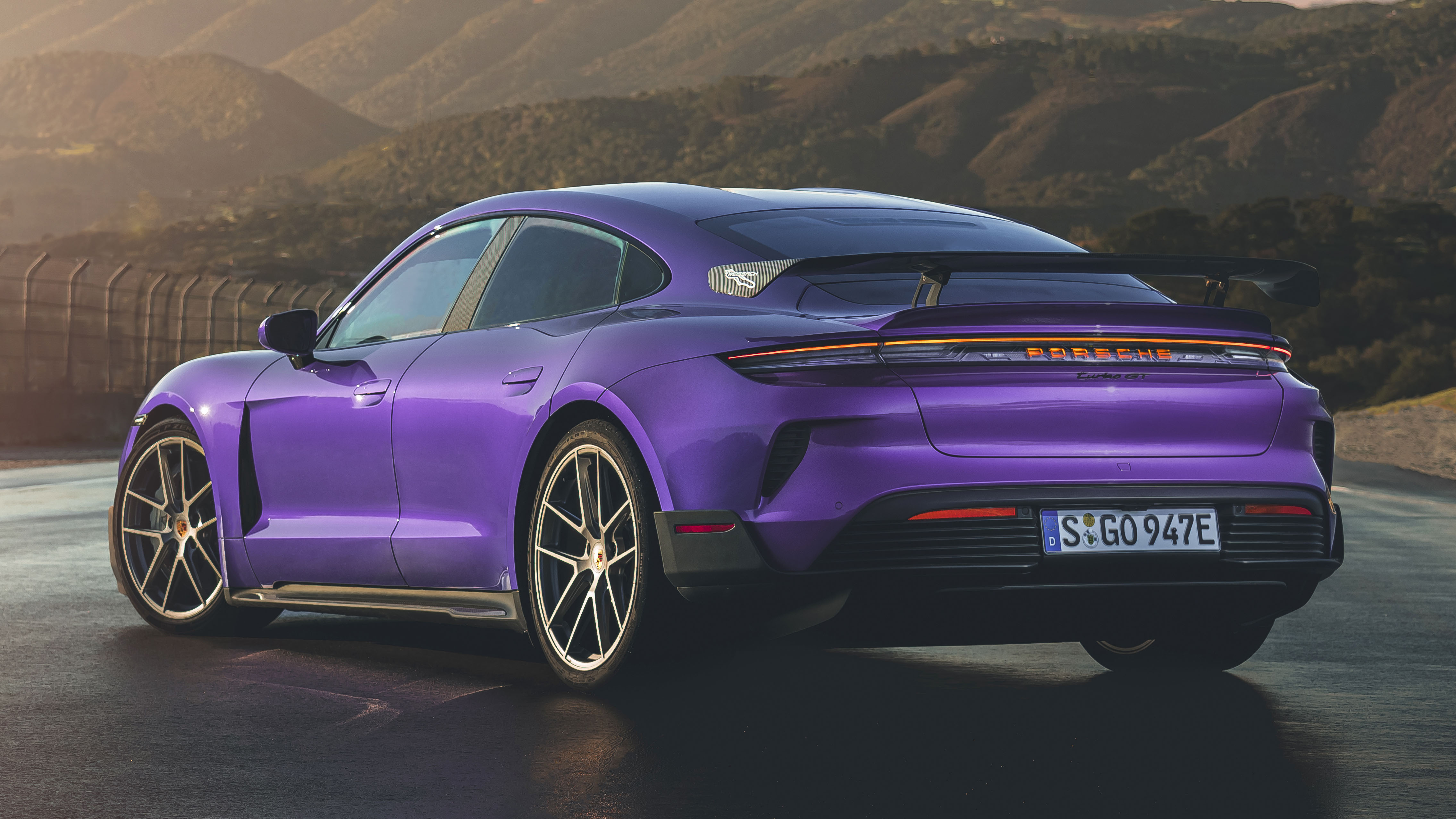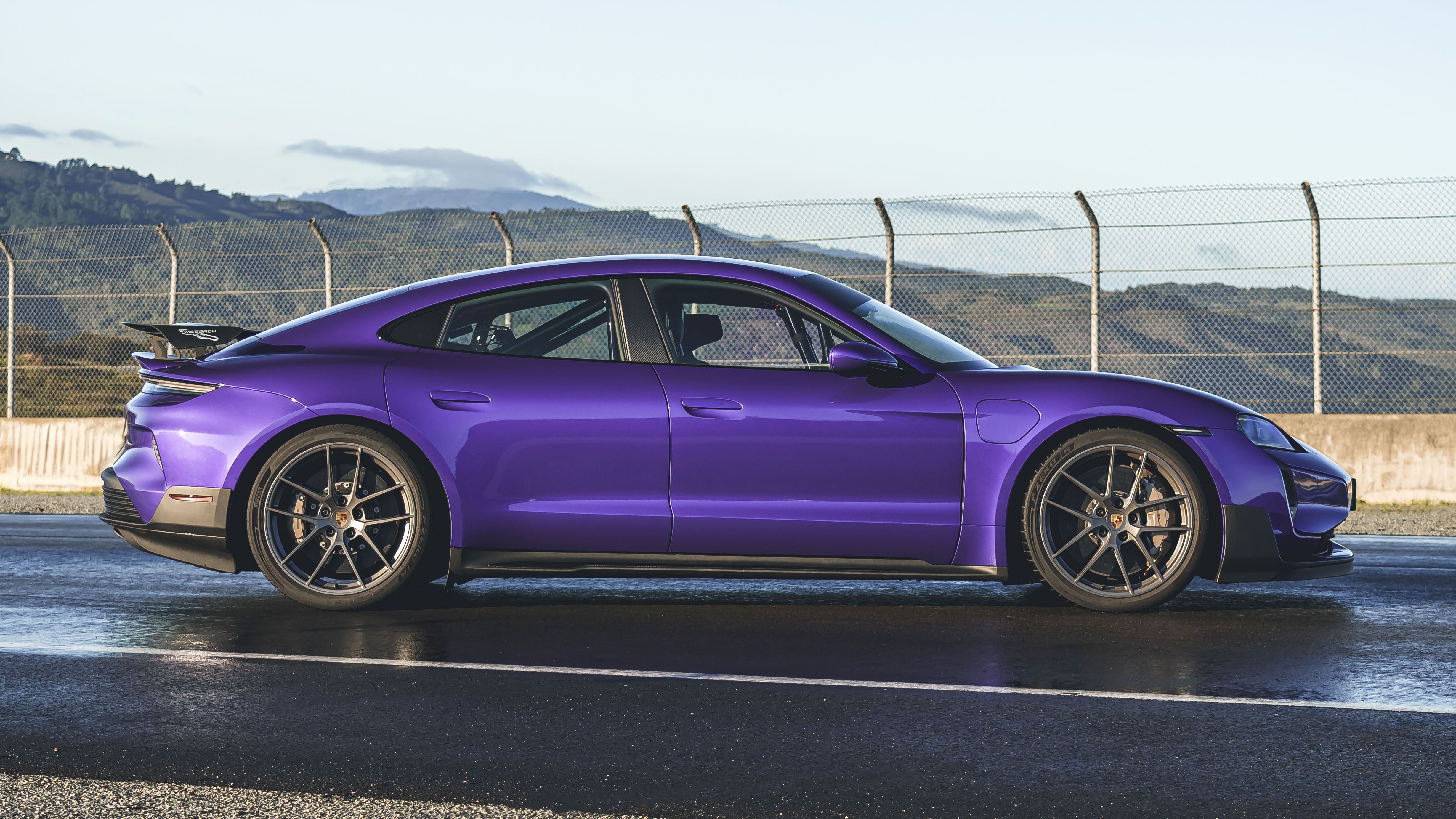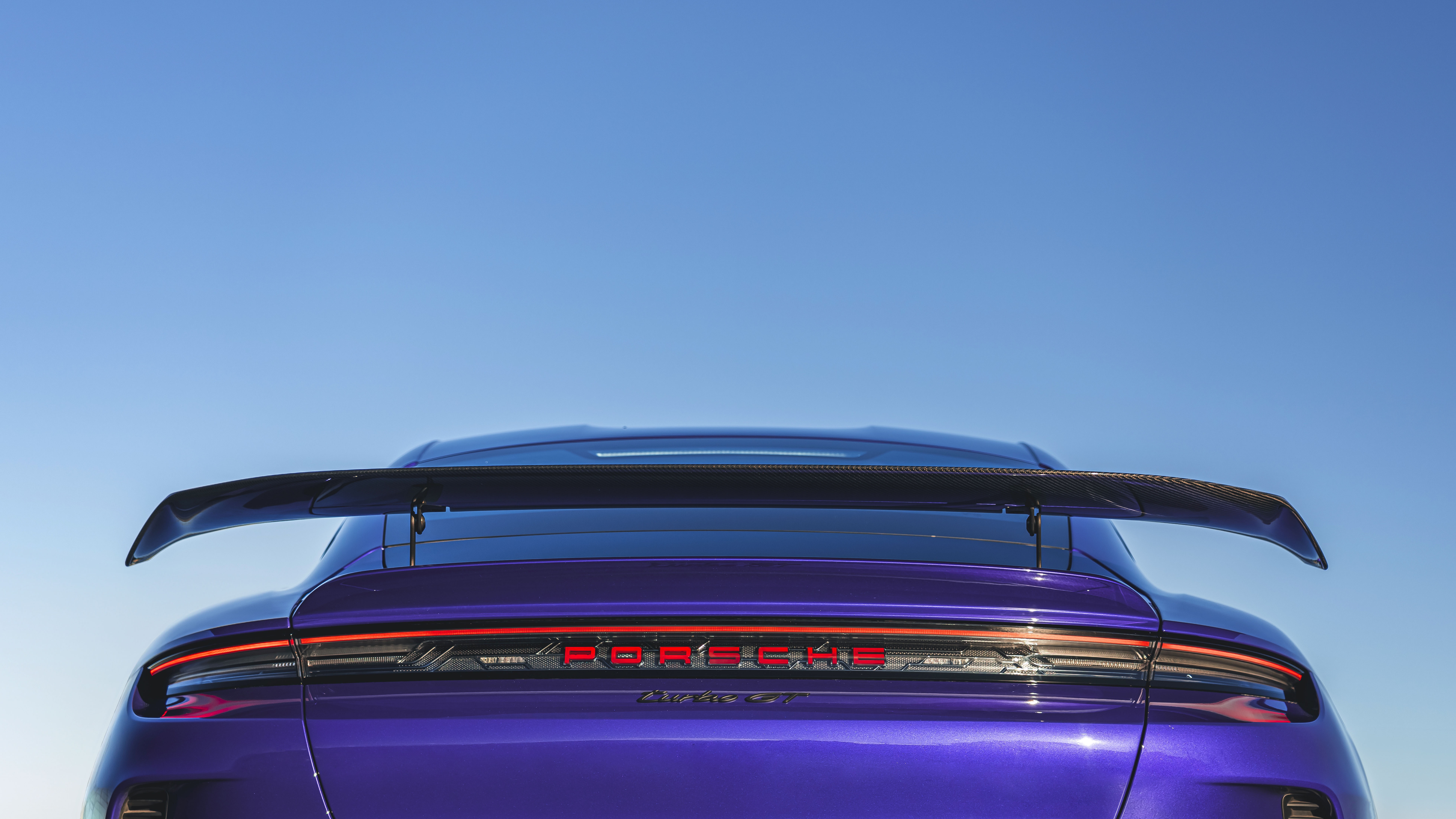
Opinion: is a faster Porsche Taycan Turbo what anyone needed?
Ollie’s almost seen his lunch in reverse thanks to a 1,100bhp family saloon
I’ve been lucky to drive a lot of fast cars in this line of work. But only one ever made me lift off the accelerator not because I was running out on runway (or talent) but because I simply felt sick. Properly, stomach-churningly nauseous. It was summer 2020, at the fabulous Angelsey track on the western coast of Wales. The car was a Porsche Taycan Turbo S.
I’d driven fast EVs before. Tesla Model S P100Ds, toying with Nissan GT-Rs in drag races. But something about the Porsche’s ruthless, un-sweaty composure as it shot forward triggered my gag reflex.
Since then I’ve felt launch control in a Bugatti Chiron Super Sport. I’ve pelted Lucid’s Air Sapphire (1,234bhp) from rest to 130mph in a nanosecond. I’ve even had to look at a BMW XM In Real Life. Bleurgh. But nothing has ever pressed rewind on my digestive system as strongly as the Taycan.
I guess it’s like that old Henry Ford quote: “If I had asked people what they wanted, they’d have said ‘a faster horse’.” The Turbo GT is a faster horse. It’s a Taycan with better brakes, cleverer suspension, more power (and less weight if you select the Weissach Package.) It’s a family saloon car that will get from 0-62mph in 2.3 seconds or less. Repeatedly. A human will give up before the batteries or motors do.
And that should impress me. I should be effusive in my praise for the Porsche engineers. After all, I like fast cars. I like outrageous pieces of engineering like an SR-71 Blackbird, a Union Pacific Big Boy locomotive, or a Space Shuttle. There’s nothing like building a heroically OTT machine to bring out the best in mankind.
So why did even witnessing the Taycan Turbo GT destroying the all-electric lap record at Laguna Seca leave me a little listless? I guess it’s because there’s so little that’s tangibly ‘new’ on the surface of the car that explains to my caveman brain why it’s so fast.
When I walk up to a GT3 RS my schoolboy eyes read the semi-slick tyres, the gouged doors, that vast aero package and compute how those elements help the car achieve bonkers track performance. But the Turbo GT is – like all super-EVs – a Q car. Spec it without the wing and badges and literally no-one would guess it’s got twice the poke of a Jaguar XJ220.
Plus all the usual caveats apply. Where do you use all that extra pace? How often would you appreciate getting from 0-125mph in 1.1 seconds less than a Turbo S version?
I know there’s always a market for an ‘ultimate. It’s why Mercedes went on producing V12 S-Class AMGs even once the V8s were faster, because there’s a certain buyer out there who won’t settle for anything else. More is more. And because Tesla, Lucid and even Hummer have proved there’s a demand for a 1,000bhp+ electric car, Porsche has to be seen to get on terms. After all, if you’re standing still, you’re being left behind.
Top Gear
Newsletter
Thank you for subscribing to our newsletter. Look out for your regular round-up of news, reviews and offers in your inbox.
Get all the latest news, reviews and exclusives, direct to your inbox.
Maybe that’ll do for a Taycan. It is after all Porsche’s first foray into electric cars. A successful one too, and it competes in a market where out-and-out speed is a rich currency.
But next year, there’s going to be an all-electric Boxster and Cayman: class-leading sports cars both. And for me, just adding speed until the unwitting pilot revisits breakfast isn’t going to be anywhere near enough.
Trending this week
- Car Review
BMW 1 Series
- Top Gear's Top 9
Nine dreadful bits of 'homeware' made by carmakers










